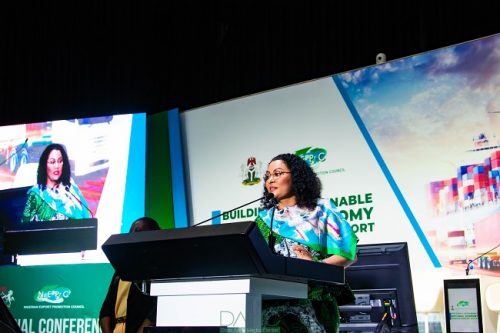The Federal Government of Nigeria is doubling down on its commitment to enhance the quality of locally manufactured products. aiming to amplify Nigeria’s capacity for exports, thereby increasing foreign exchange earnings.
Dr. Doris Uzoka-Anite, the Minister of Industry, Trade and Investment, emphasized the significance of prioritizing the production, processing, and packaging of non-oil export goods for Nigeria’s sustainable development. Speaking in Abuja, she underscored the need for practical economic programs and trade policies to address key issues such as job creation, wealth generation, and the growth of Micro, Small, and Medium Enterprises (MSMEs), which are vital contributors to the national economy.
Uzoka-Anite highlighted the collaborative efforts between the Federal Ministry of Industry, Trade and Investment, and its associated parastatals. She cited a recent milestone achieved through the Technical Committee on Export Rejects, where valuable recommendations were made to curb the rejection of Nigeria’s products in the global market. This has significantly reduced the volume of rejected products in our export baskets.
This accomplishment not only upholds Nigeria’s reputation as a reliable trading partner but also bolsters the confidence of international buyers in Nigerian products.
Addressing a crucial supply-side challenge, Uzoka-Anite introduced the Domestic Export Warehouse (DEW) Project initiated by the Nigerian Export Promotion Council (NEPC) in collaboration with other government agencies. This project provides a consolidated facility for various pre-export operations, including storage, packaging, labeling, pre-shipment inspection, and fumigation of goods. It streamlines logistics, mitigating challenges associated with port congestion.
Uzoka-Anite emphasized that the DEW Project exemplifies the government’s innovative approach to improving the export sector, ultimately enhancing the competitiveness of Nigerian products in international markets.
The government believes that the robust exportation of goods and services holds the key to resolving the current foreign exchange challenges, revitalizing the economy, fostering entrepreneurship, and generating employment opportunities for Nigerians. This commitment underscores a pivotal step towards empowering local businesses and propelling Nigeria’s economic growth.









